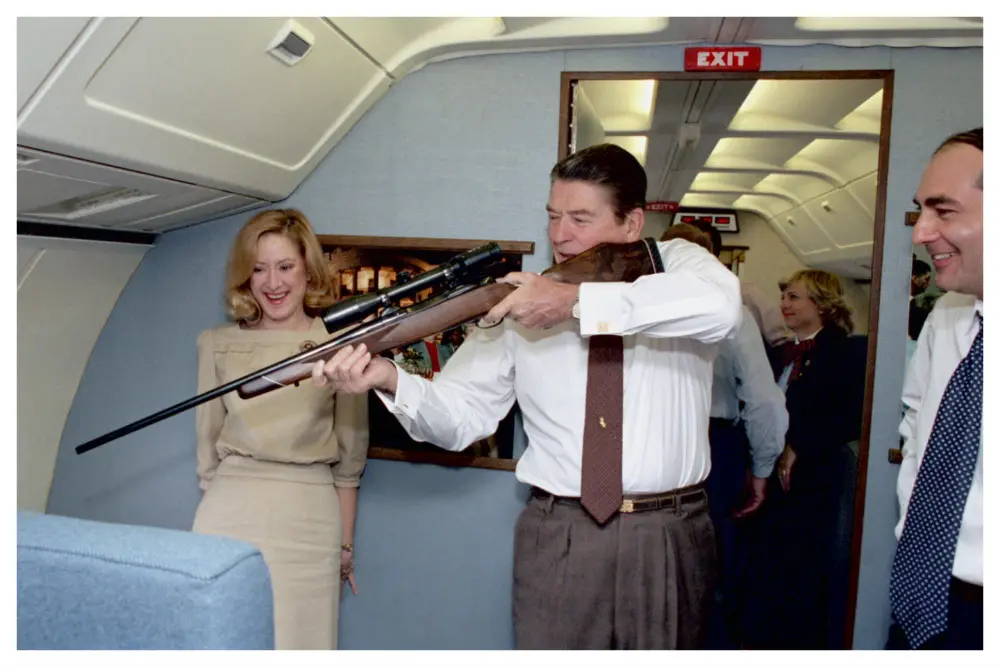Belgian filmmaker Johan Grimonprez, whose “Soundtrack to a Coup d’Etat” won an award for cinematic innovation at Sundance, mused on the significance of the “symbolic act” during a talk at documentary festival IDFA on Sunday.
Speaking in the art-deco splendor of Amsterdam’s Tuschinski movie theater, Grimonprez started with an extract from his film “Shadow World,” which investigated the arms trade. First, he showed a clip in which Iraqi journalist Muntazer al-Zaidi threw his shoes at George W. Bush during a press conference as a protest against the U.S. occupation of his country. Then there was an interview in which al-Zaidi explained what drove him to do this, and the price he paid (he was waterboarded, electrocuted and had his front teeth knocked out).
Grimonprez, who is the Guest of Honor at IDFA, observed that “images are screaming out at you” in today’s world. It’s like standing in Times Square, he said. He reflected on the rise of hijacking as various groups realized that in a world dominated by images such acts would get their causes attention. In a tragic extension of such logic the hijackers also discovered that the death of a hostage amped up that attention, especially if that hostage was American.
Popular on Variety
“Soundtrack to a Coup d’Etat” Courtesy of Johan Grimonprez, Ambroise Boimbo, Robert Lebeck The media and politicians in the West tended to focus on such “terrorist spectacles” in order to “deflect attention from what else was happening,” he said, such as intervention in Latin America – the invasion of Grenada during Ronald Reagan’s presidency being one example.
Grimonprez, who referred to himself as a “cultural anthropologist,” spoke of the television set as having become a “fear box.” He said that in such a world “reality is trying to catch up with the media.” Meanwhile, he posited, “We have been reduced from citizens to consumers.”
Films such as “Soundtrack to a Coup d’Etat,” which addressed the murder of Patrice Lumumba, Congo’s first democratically elected leader, could play a part in holding corporations to account, he argued. For example, the film includes references to Apple and Tesla, alluding to the present-day exploitation of the country by armed groups fighting over the mining of cobalt, which is found in the batteries for smartphones, laptops and electric vehicles.
Johan Grimonprez Courtesy of Getty Grimonprez pondered on the role of the filmmaker in such a world. “Where do you insert a voice?” he asked. He said that he liked to include “intimate moments” in his films as they were “the heartbeat of history.”
Cautioning against defeatism, he spoke of the benefits of hope, and repeated a quotation attributed to Saint Augustine: “Hope has two beautiful daughters; their names are anger and courage. Anger at the way things are, and courage to see that they do not remain as they are.”

 Italian
Italian







